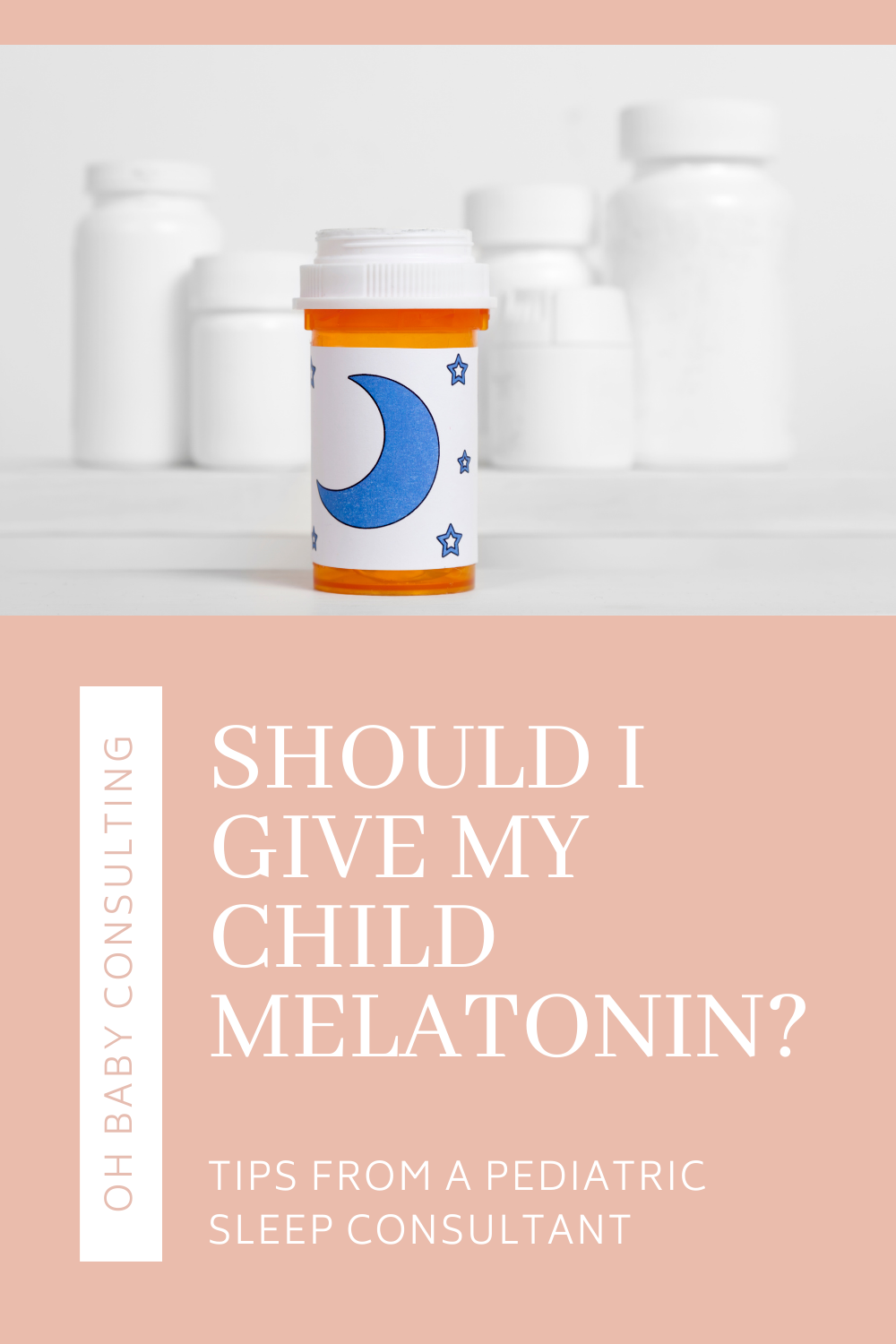Should I Give My Child Melatonin?
Long before urgent cares and pharmacies existed, there were insects, plants, and herbs that were used to alleviate the symptoms of common health issues naturally. The hype around natural cures for common ailments seems to have been reinvigorated lately as parents (and non-parents alike) strive to live the healthiest lifestyle possible.
I should stipulate first that I’m not anti-homeopathy, nor am I anti-pharmaceutical. I feel that health decisions are something that should be carefully considered by each individual with the advice of their doctor or other trusted health provider. If using probiotics have been a game-changer for your gut health, I say go for it! If you need medication to lower your cholesterol, then you should probably take that too. I’m all about that “and” lifestyle.
But I firmly believe that anything going into your body and – every bit as importantly – into your child’s body, should be evaluated both for its efficacy and possible side-effects. Therefore, I think it’s important that I address a buzzword of the past few years: melatonin.
Melatonin has been touted by many homeopathic experts as a safe, natural way of helping people sleep better. In a lot of ways this is very true, but there’s actually a whole lot more to understand about it before you start incorporating it as an additive into your or your child’s daily regimen.
What is Melatonin?
Melatonin is a hormone that’s secreted from the pineal gland and helps to settle your body and mind down when it’s time to sleep. In the simplest terms, melatonin is your brain’s way of closing the shades for the night. On the flip side, we have melatonin’s counterpart, cortisol. Cortisol acts by opening those shades back up in the morning. These two hormones work together to make up a large part of what we refer to as our “body clock.”
One thing that is vitally important to understand is that our bodies are already producing melatonin naturally. As our melatonin levels rise in the evening, it allows our bodies to relax and be primed for sleep. As melatonin levels fall in the morning and cortisol rises in its place, our body is able to wake up for the day.
When is Melatonin produced?
When it starts to get dark outside, the body is able to recognize the onset of night and starts ramping up the production of melatonin. Melatonin production is supported by dim lighting, turning off screens, and closing the blinds if it’s still light out (like in the summer months). Melatonin production is suppressed by bright lights, the blue light emitted from electronics, and sunlight.
If my child is struggling with sleep, should I supplement Melatonin?
Short answer: probably not
Caveat: if your child has a diagnosed sleep disorder or you’ve been instructed by your child’s pediatrician to use melatonin as a sleep aid for a known, medical sleep issue.
Melatonin is a naturally occurring hormone in the body, so taking more of it can have serious side effects such as abdominal pain, excessive sweating, vision problems, nausea, daytime laziness, and drowsiness. There are also links to impacts on growth, sexual development, and puberty. Additionally, supplementing with synthetic melatonin may cause your body to slow or stop producing its own.
In addition, The National Sleep Foundation found that, “…when scientists conduct tests to compare melatonin as a ‘sleeping pill’ to a placebo (sugar pill) most studies show no benefit of melatonin.”
Again, I am in no way anti-homeopathic or naturopathic medicine. There are very real uses for melatonin – jet-lag and shift work being the biggest two. However, in general (and especially in children) melatonin is not a solution to chronic & persistent sleep issues.
How can I help my child sleep better without Melatonin?
The truth of the matter is that (barring medical considerations for diagnosed clinical sleep issues) the best thing you can do to improve your child’s sleep is to establish healthy sleep hygiene & teach the skill of independent sleep.
Changing habits around sleep is the number 1 way to improve sleep quality and quantity for non-medical sleep issues (in children & adults alike). But just like learning any other skill, it takes practice and time to teach your little one how to sleep independently. There’s no supplement that can teach you how to play and instrument, do long division, or sharpen your golf game (wouldn’t that be nice). Sleep is exactly the same. It’s a skill that needs to be developed and once it is & the habits surrounding it are healthy, sleep comes easily and naturally most of the time.
So before you reach for the pills, try establishing a predictable and consistent bedtime routine, shutting down the TVs and tablets a couple hours before bed to allow that natural melatonin to rise, and teaching your child the skills they need to be an independent sleeper. I promise you, the results will be better than anything you’ll get from a pill and they’ll last a lifetime!
If you’d like some support helping your child get more sleep, please reach out. With a variety of 1:1 coaching options, I’m here to help your whole family get the rest they need, drug-free!
If you’re exhausted, totally overwhelmed by your child’s sleep habits, or looking for answers to the sleep questions that keep you up at night (literally), then you’ve come to the right place. I’m Jamie, founder of Oh Baby Consulting, and my goal is to help your family get the sleep you need to not just survive, but thrive!

